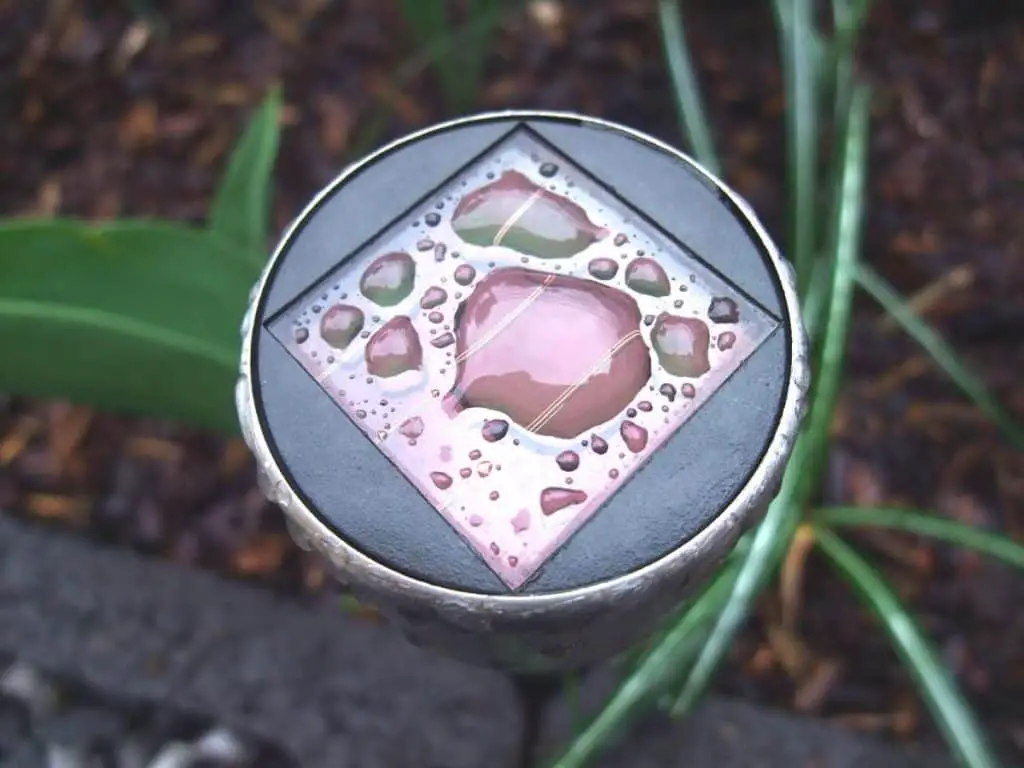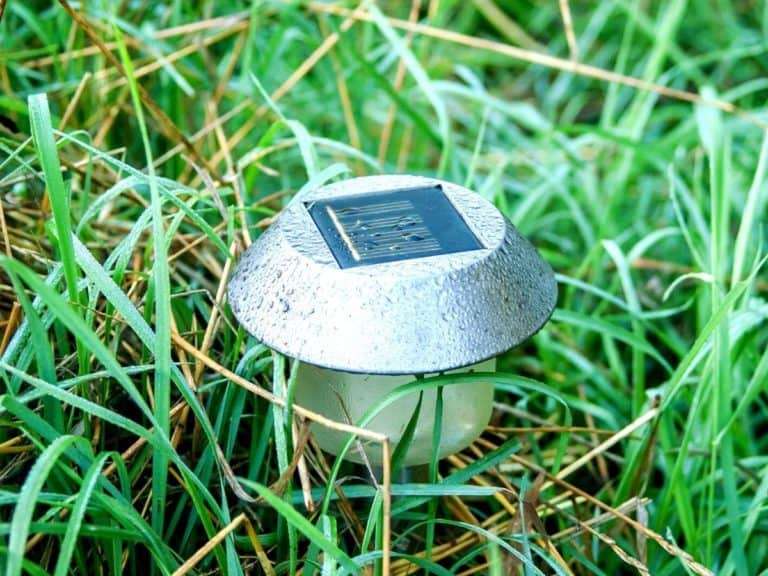Solar lights are a great way to illuminate your home without wiring or additional costs. Since they are always outside, you may wonder if solar lights can get wet. I’ll be telling you a bit about solar light and how to tell if yours are waterproof.
Solar lights brighten up a garden, especially on winter nights. Although sometimes the light needs replacing after only a couple of years. The weather could be damaging your solar lights.
Here are a few key points I’ll be covering today;
- Solar lights and weather
- How to tell if your lights are waterproof
- How to protect your solar lights from the weather
This article will save money and keep your cool solar light looking amazing.

Can Solar Lights Get Wet?
Outdoor solar lights should withstand the rain. Your average outdoor solar light is typically rated for rain. Some cheap lights may not be water-resistant. You should always check the label to ensure your lights are safe for water.
Material is also important. Most lights on the market use plastic, but you can find solar lights that use glass. Glass solar lights should not be left out if snow or heavy rain is expected. The glass can break if a cold liquid gets on the warm glass.
Generally, glass lights are more likely to be damaged by weather like wind or sand. Any glass lights should be brought indoors if your area expects extreme weather.
If your solar lights aren’t rated for water, you may need to use them in sheltered areas. You may also need only to use them on nice nights.

Water Resistance Ratings
When looking at solar lights, you may notice a label with “IP” and some numbers. For instance, it may be labeled as IP51 or IP64.
These numbers indicate how well-protected the electronic components are from solids and liquids. The first number refers to solid objects, and the second refers to liquids.
See also: Solar Panel Lights (How They Work Best)
What the Numbers Mean
On the solid object side, the scale goes from 0-6. 0 offers no protection whatsoever, such as electronics without a case like a bare circuit board. A 6 means the unit is completely protected from dust.
The scale is 0-9K on the liquid side. This quick list will help you know what the second digit refers to.
- 0- No protection
- 1- Protected from drops from above
- 2- Protected from drops hitting at a 15 degree angle
- 3- Protected from spray at a 60 degree angle
- 4- Protected from water splashing at any angle
- 5- Protected against water jets
- 6- Protected against strong water jet and heavy seas
- 7- Protected against temporary submersion under 30 minutes
- 8- Protected against temporary submersion, but exact time varies
- 9K- Protects against high pressures like steam cleaning

What Rating Should Solar Lights Have
For outdoor lights, you want an IP64, at least. This means your light can handle dust and rain easily. A splash from a nearby puddle won’t kill your lights.
An IP52 could work, but heavy rain or dust could damage the lights. Anything outdoors should be sealed to keep out dirt and debris.
You will need a higher rating if your area receives heavy rains or storms. An IP51 will be resistant to dust and light rain. An IP63 will be sealed against dust and safe from heavier rains.
Anything with a higher waterproof rating will survive most weather situations. This will help ensure your lights work for years to come.
Remember to be careful of snow since the cold may damage your lights.
The IP64 weatherproof solar lights would be a great addition to anyone’s garden;
- 2 Brightness Levels: Low light mode (10hrs) / high light mode (6 hrs). Equipped with a wide solar panel, URPOWER solar...
- Separately Adjustable Light & Solar Panel: The solar spotlights can be adjusted up to 90° to illuminate any outdoor space....
- 2 in 1 Functions & 2 Installation Options: Stick into the ground by stakes, or mount on the wall by screws. These outdoor...

Protecting Your Lights From the Weather
Even the best lights may need to be taken in if your area expects extreme weather. Here is how to care for your lights, depending on the rating.
If your lights are not water-resistant or have no rating, you should only have them outside on nice days. Take them inside as soon as rain or heavy winds are forecast.
Lights with ratings under 6 for solids, so an IP5X or less, will need to be taken inside as soon as the wind picks up. The light could be damaged if you live in an area with dust or pollen.
For waterproof ratings, you should look at the weather report for the amount of wind and rain. High winds can sneak light rain under the protection of lights with a rating of IPX2 or less.
If your area may experience flooding, always take your lights inside. They would need to be rated for underwater use to withstand a day underwater.
Even if you may not have proper flooding, a puddle formed by your lights could cause damage. This is particularly true for low lights that may not have much clearance.
Snow can damage your lights. Snow can melt from the lights and end up reaching the electronics. Unless your lights are rated for snow, you should take them inside.
Glass lights should be taken in whenever the weather gets bad. Dust can etch the glass, and thermal shock can shatter them.
Weather-proofing Solar Lights
If you have bought cheap solar lights without a rating, you may be able to seal them yourself to help prevent damage. They should not be trusted in heavy winds or rains, but a drizzle shouldn’t be a problem.
For instance, many decorative solar lights can’t handle water. There are many fixes online to help prevent damage in light rain.
One popular option is to seal the panel with either silicone sealant or greenhouse repair tape. Make sure the panel and surrounding area are covered. Scratching the surrounding metal or plastic housing will help the adhesive stick.
This will help keep any water out of the electronics. Cheap lights can have their batteries overloaded and may fail. If you live in a sunny place, you may need to replace the batteries.
You may also need to seal gaps in cheap solar lights to keep insects out. The sealant works well and can help keep your lights working longer.
Sources
- Easy Fix for Cheap Lights – Youtube
- IPX ratings explained – Tag Digital




